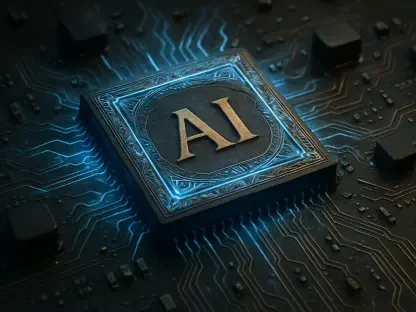In a breakthrough for sustainable manufacturing, Siemens and NVIDIA are utilizing digital twins to optimize production and minimize carbon emissions, according to the NVIDIA Blog. This initiative aims to bolster the entire manufacturing cycle’s sustainability, from material sourcing to disposal. The primary challenge manufacturers face is balancing sustainability with profitability, as highlighted in a 2022 Ernst & Young study that found digital twins could reduce construction costs by up to 35%. However, data management and departmental silos remain significant obstacles. Many manufacturers struggle to effectively utilize their vast data resources, hampering their sustainability goals. Research by The Manufacturer indicates that inefficient data management negatively impacts energy efficiency, with data often confined to specific use cases. Digital twins, supported by platforms like NVIDIA Omniverse, are transforming manufacturing by offering a holistic view of engineering data, facilitating better collaboration across departments and reducing waste and errors.
Leveraging Digital Twins for Enhanced Collaboration and Efficiency
Siemens is integrating NVIDIA Omniverse APIs into its Xcelerator platform to enable the creation of detailed digital twins for improved resource management. Companies like HD Hyundai and Foxconn are leveraging these capabilities to visualize complex engineering data and optimize production processes. Foxconn, for instance, has developed a virtual plant to improve automation and efficiency, aiming for a 30% annual reduction in energy consumption. The integration of digital twins allows these companies to simulate various aspects of their production processes before actual implementation, thus identifying potential inefficiencies and areas for improvement without causing interruptions in the real-world environment.
The adoption of digital twins is not just about marginal gains in efficiency but represents a substantial shift in how companies conceive and manage their production cycles. By utilizing advanced simulation technologies, firms can anticipate problems before they arise, streamline workflows across multiple departments, and achieve precise control over energy use. These detailed simulations provide actionable insights, enabling companies to make informed decisions that significantly impact sustainability. Through these collaborative efforts, digital twins are addressing the problem of departmental silos by unifying disparate data streams into a cohesive and accessible format. This unity forms a robust foundation for achieving both productivity and sustainability goals.
Balancing AI Growth with Energy Efficiency
As the demand for AI grows, industries face the challenge of balancing energy efficiency with AI growth. Accelerated computing platforms that combine GPUs and CPUs offer a solution by enhancing computational efficiency and reducing energy use, demonstrating up to 20x more energy efficiency in AI tasks compared to traditional CPU systems. Manufacturers are also exploring energy management strategies, including renewable energy sourcing and heat reuse, to mitigate their environmental impact. Companies are increasingly aware that the surge in AI and machine learning applications must be met with equal consideration for their energy footprints to ensure sustainable growth and environmental responsibility.
Looking ahead, the industrial metaverse represents the next phase in manufacturing, merging digital and physical realms for more immersive digital twins and faster, data-driven decisions. Siemens’ CEO Roland Busch highlights the potential of these advancements to revolutionize product design and manufacturing. The collaborative effect of digital twins and accelerated computing could lead to more intelligent systems capable of self-optimization, ultimately pushing the boundaries of what’s achievable in modern manufacturing. This vision of a connected industrial metaverse offers a promising pathway toward a more sustainable and efficient industry.
Sierra AI and Industrial Metaverse: A Revolutionary Approach
Siemens and NVIDIA are revolutionizing sustainable manufacturing through digital twins, as reported on the NVIDIA Blog. By optimizing production processes and reducing carbon emissions, this tech seeks to improve the entire manufacturing cycle, from sourcing materials to end-of-life disposal. The main hurdle for manufacturers is balancing sustainability with profitability. A 2022 Ernst & Young study revealed that digital twins could lower construction costs by up to 35%. Yet, data management and departmental silos present significant challenges. Manufacturers find it tough to harness large datasets effectively, which stymies their sustainability ambitions. Research by The Manufacturer shows that poor data management hampers energy efficiency, with data usually limited to specific tasks. Platforms like NVIDIA Omniverse are addressing this by providing a comprehensive view of engineering data. This improves inter-departmental collaboration, reducing waste and errors while boosting overall sustainability in manufacturing.









